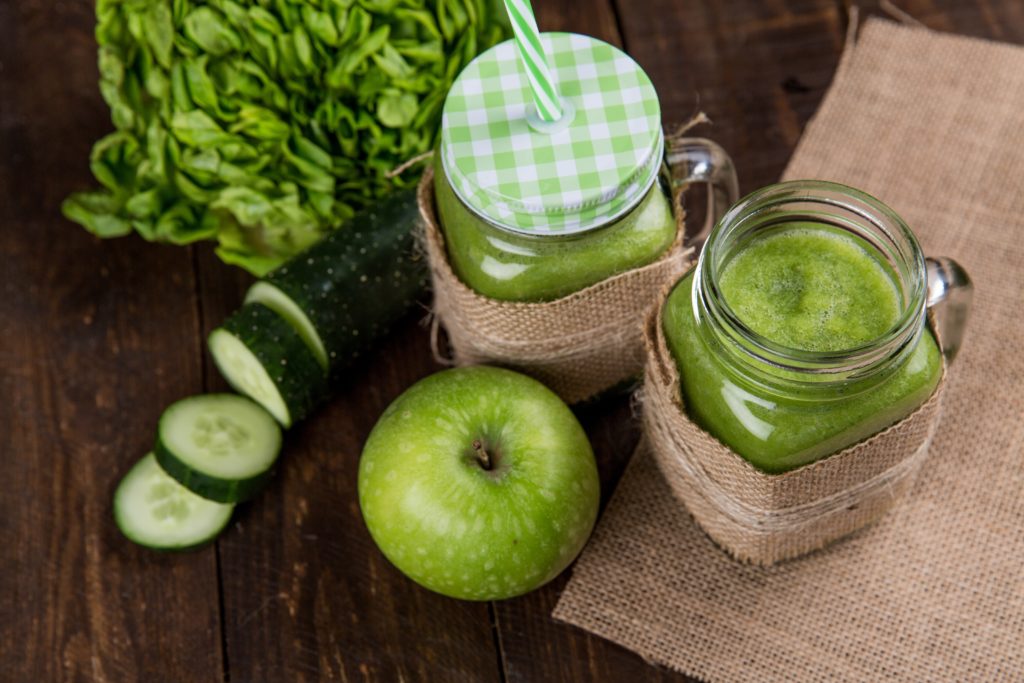Improve Gut Health with Juicing and Diet | Juice Me Better
The human microbiome is the greatest discovery of the 21st century. Science has confirmed that several disorders and disease in the body are a result of poor gut health. With that said, having a healthy gut is of the utmost importance in order to stay vibrant and promote healthy aging in the body.
Unfortunately, the majority of the general population has an extremely dysfunctional microbiome. When the microbiome becomes dysfunctional, it’s often referred to as “gut dysbiosis.”
There are several factors that can contribute to gut dysbiosis in the body. However, the two most common causes of gut dysbiosis are poor diet and overuse of antibiotics. Those eating a standard American diet will be more at risk of developing gut health issues and symptoms related to dysbiosis in the gut. Also, overuse of antibiotics can kill the healthy gut flora and open the door for conditions like small intestinal bacteria overgrowth (SIBO). When this occurs, regaining control over the microbiome is extremely challenging.
Luckily, there are several natural strategies that can be used to correct poor gut health and improve the terrain of the microbiome. Juicing is hands down of the best things you can do to help improve all aspects of gut health. Yet, before we start talking about the health benefits of raw juices, let’s first talk about the importance the microbiome has on our overall health.
Gut Health Affects Everything
Having a healthy microbiome is everything when it comes to overall health. In fact, research has shown that the majority of our immune system is dependent on the health of our microbiome (1). If our gut is dysfunctional or in a state of dysbiosis, our health will inevitable suffer.
Interestingly, Hippocrates once said, “All disease starts in the gut.” This statement was made well over 400 years before Christ. Yet, science is beginning to prove what Hippocrates realized long ago. With that said, a healthy microbiome is essential for good overall health.

The Repercussions of Poor Gut Health
Having poor gut health can result in several different symptoms throughout the body. It’s extremely unique because a dysfunctional gut can manifest as symptoms totally unrelated to the digestive system. However, in cases such as irritable bowel syndrome (IBS), gut dysbiosis is almost always the culprit.
In fact, Candida overgrowths are extremely common in those suffering from IBS or other digestive disorders (2). For those unaware, Candida is a pathogenic fungus that takes control over the gut when there are imbalances within the microbiome.
Furthermore, researchers are finding that poor gut health can contribute to mental health disorders such as anxiety and depression (3). Unfortunately, many will opt for harmful antidepressants to combat this problem without ever getting to root of the real problem. Many health experts now refer to the gut as “the second brain” due to its immense influence on an individual’s overall mental health.
Also, inflammatory skin conditions such as acne, psoriasis, and eczema are all influenced by the health of an individual’s gut (4). Many will suffer an entire lifetime of skin inflammation without ever fully correcting the issue. Creams only treat the problem on the surface of the body and do not fully stop the issue from reoccurring. This is because most inflammatory skin conditions are a result of an internal issue.
To be clear, these are just a few examples of how poor gut health can affect the body negatively. There are thousands of other symptoms associated with poor gut health, some of which have yet to be linked. To say that a healthy microbiome is essential for good health is an understatement.
Symptoms of Gut Dysbiosis
There are several symptoms that are associated with a gut dysbiosis. Although symptoms can vary immensely from individual to individual, there are a few symptoms that are extremely common. Below is small list of common symptoms related to gut dysbiosis.
- White coating on tongue
- Small intestinal bacteria overgrowth (SIBO)
- Bloating after Eating
- Diarrhea/Constipation
- Skin Inflammation
- Food Sensitivities/Allergies
- Itchy after eating
- Irritable bowel syndrome (IBS)
- Anxiety or Depression
- Acid Reflux (low stomach acid)
If you suffer from any of these symptoms, there is a good chance that you suffer from poor gut health. Many with poor gut health find that symptoms such as the ones listed above become worse as time goes on. This is because as more and more bad bacteria flourish in the gut, new symptoms begin to arise while previous symptoms become worse.
Fortunately, imbalances in the gut can be corrected by following several natural strategies.
Follow a Correct Gut Healing Diet
If you suffer from poor gut health, following a proper gut healing diet can be extremely beneficial. Many popular foods that are eaten in abundance by the general population are extremely damaging to the gut.
Foods such as nuts, seeds, bread, pasta, vegetable oils, and processed foods are extremely inflammatory and can contribute to poor gut health. In fact, all grains contain an anti-nutrient called phytic acid that can cause severe inflammation in the intestines (5).
Traditionally, soaking and fermenting would reduce this anti-nutrient significantly. Unfortunately, this step is not taken due to mass production and time. Nuts and seeds also contain high amounts phytic acid and should be eaten in only small amounts.
Furthermore, researchers found that dietary emulsifiers present in most processed foods can contribute to intestinal inflammation and open the door to conditions such as diabetes and obesity (6).
In order to help restore proper gut function, avoid the following foods below.
- Grains
- Nuts and Seeds
- Vegetable Oils
- Processed Foods
- Alcohol
- Sugar
- Non-organic food items

Other Diet Strategies for Healing the Gut
Basically, a whole foods diet that consists of natural foods is the best strategy for correcting gut issues. Also, it’s imperative that you buy organic. Non-organic food is full of pesticides that can wreak havoc on the both the gut and the body’s endocrine system.
If you consume lots of vegetables, it’s best to steam them first. Although raw vegetables are nice, they are extremely fibrous and contain small amounts of nutrient inhibitors. This can cause extreme digestive distress and can contribute to a gut dysbiosis. Steaming breaks down this tough fiber and reduces the anti-nutrient load drastically.
For those interested learning more about diet and how it influences the health of the gut, The Weston A. Price Foundation is an excellent resource. There are thousands of free articles on this site that can help you navigate your gut healing journey.
Juicing for Amazing Gut Health
At this point, you may be asking how juicing can be beneficial for gut health since vegetables naturally contain gut irritating fiber and anti-nutrients. However, juicing is completely unlike eating raw fruits and vegetables. This is because juicing removes the fiber and dramatically reduces the anti-nutrient load.
As a result, raw juices are full of beneficial raw enzymes, vitamins, minerals, phytochemicals, and antioxidants. These elements are in a highly bio-available form and help regenerate the microbiome.
Whenever creating a juice recipe, it’s important that you follow the ratio below for best results.
- 70% Dark leafy greens
- 20% Fruits
- 10% Herbs
Notice how the majority of all juice recipes are primarily dark leafy greens. This is no mistake as dark leafy greens contain an abundance of trace minerals without the high amounts of sugar found in fruit. Juicing too many fruits can led to unwanted blood sugar spikes in the body and can cause more harm than good.
Also, it’s imperative that all your juice recipes contain at least 10% herbs. Herbs such as ginger have anti-candida properties and can help control pathogenic overgrowths in the gut (7) Also, be sure to use only small amounts of fruit so sugar content is kept low.
It’s best to consume at least two raw juices a day so that the body becomes saturated with the healing elements found within in all raw juices. For juice recipe ideas, be sure to check out our Juice Me Better Juicing Recipe Book for mineral rich juice recipes!

Start Juicing Today
If you’re new to juicing and interested in learning more about juicers, be sure to visit our comparison and buyer’s guide page. This page explains the basic juicing principles and lays out the best juicers for any budget.
Although buying a home juicer can be a big investment, your body will thank you in the future. When it comes to good health, money should never stop you from becoming the healthiest you can possibly be!

